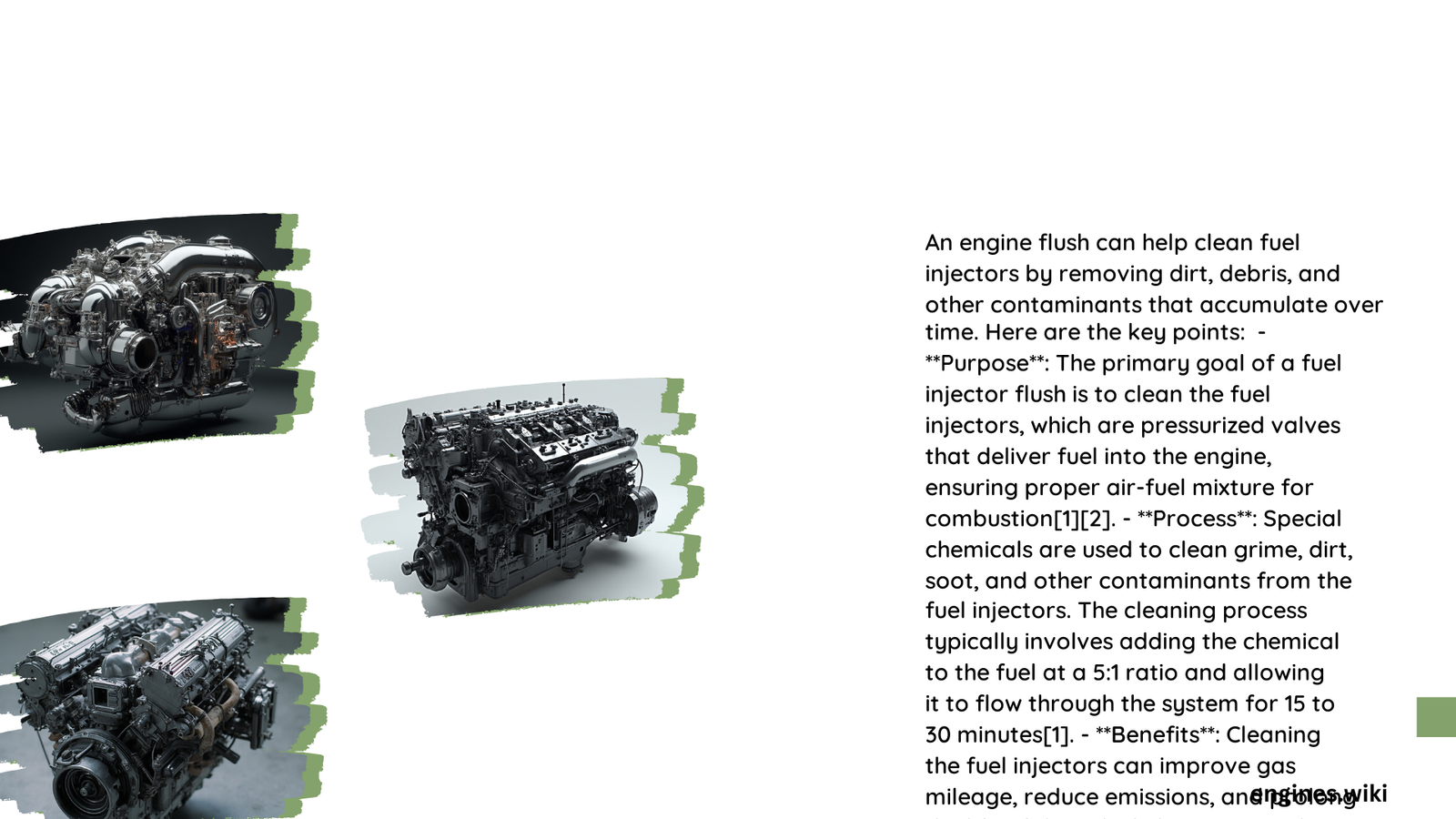Engine maintenance can be complex, and vehicle owners often wonder about the effectiveness of various cleaning methods. When it comes to the question of whether an engine flush can clean injectors, the answer is straightforward: engine flush products are not designed to clean fuel injectors. These products primarily target engine internals like sludge and varnish, while specialized fuel injector cleaners are required for comprehensive injector maintenance.
What Makes Engine Flush Different from Injector Cleaner?
Engine flush and fuel injector cleaners serve distinct purposes in vehicle maintenance. Understanding their unique characteristics helps vehicle owners make informed decisions about engine care.
How Do Engine Flush Products Work?
| Product Type | Primary Purpose | Target Area | Cleaning Mechanism |
|---|---|---|---|
| Engine Flush | Remove internal engine deposits | Engine oil passages | Dissolving sludge and varnish |
| Fuel Injector Cleaner | Remove fuel system deposits | Fuel injectors and fuel system | Detergents and solvents |
Why Can’t Engine Flush Clean Injectors?
Engine flush products have specific chemical compositions designed to:
- Dissolve accumulated sludge in oil passages
- Break down carbon deposits within engine components
- Prepare for oil change by loosening stubborn residues
Key Differences:
– Chemical composition varies significantly
– Targeted cleaning areas are completely different
– Application methods differ substantially
What Happens When You Use Engine Flush?

When an engine flush is applied, it circulates through the engine’s oil system, helping to:
- Dislodge accumulated debris
- Prepare for a comprehensive oil change
- Temporarily improve oil circulation
Can Improper Use Damage Injectors?
While engine flush isn’t designed for injectors, inappropriate use could potentially:
- Introduce unnecessary chemicals into the fuel system
- Create temporary performance inconsistencies
- Potentially cause minor system disruptions
Recommended Approach for Injector Maintenance
To effectively clean fuel injectors, professionals recommend:
- Using specialized fuel injector cleaning products
- Following manufacturer-recommended maintenance schedules
- Consulting automotive professionals for complex cleaning procedures
What Are Professional Cleaning Options?
- DIY Fuel Injector Cleaner Kits
- Cost-effective
- Easy to use
-
Suitable for minor maintenance
-
Professional Fuel System Cleaning
- Comprehensive cleaning
- Advanced diagnostic capabilities
- Recommended for significant buildup
Expert Recommendations
Vehicle experts consistently advise:
- Use product-specific cleaners for intended purposes
- Avoid cross-application of maintenance products
- Prioritize manufacturer guidelines
When Should You Clean Fuel Injectors?
- Every 30,000 miles
- When experiencing performance issues
- During scheduled comprehensive maintenance
Potential Consequences of Neglecting Injector Maintenance
Ignoring fuel injector maintenance can lead to:
- Reduced fuel efficiency
- Decreased engine performance
- Increased emissions
- Potential long-term engine damage
Cost Considerations
| Maintenance Type | Estimated Cost | Frequency |
|---|---|---|
| DIY Injector Cleaner | $20 – $50 | Every 30,000 miles |
| Professional Cleaning | $100 – $300 | As needed |
Final Thoughts
While engine flush serves an important purpose in vehicle maintenance, it is not a substitute for specialized fuel injector cleaning. Vehicle owners should use targeted products and follow professional recommendations to ensure optimal engine performance.
Reference:
– AMSOL Blog: Is an Engine Flush Good or Bad?
– ClubLexus Forum: Fuel Injector Flush
– Toyota of Orlando: Fuel Injector Flush Guide
